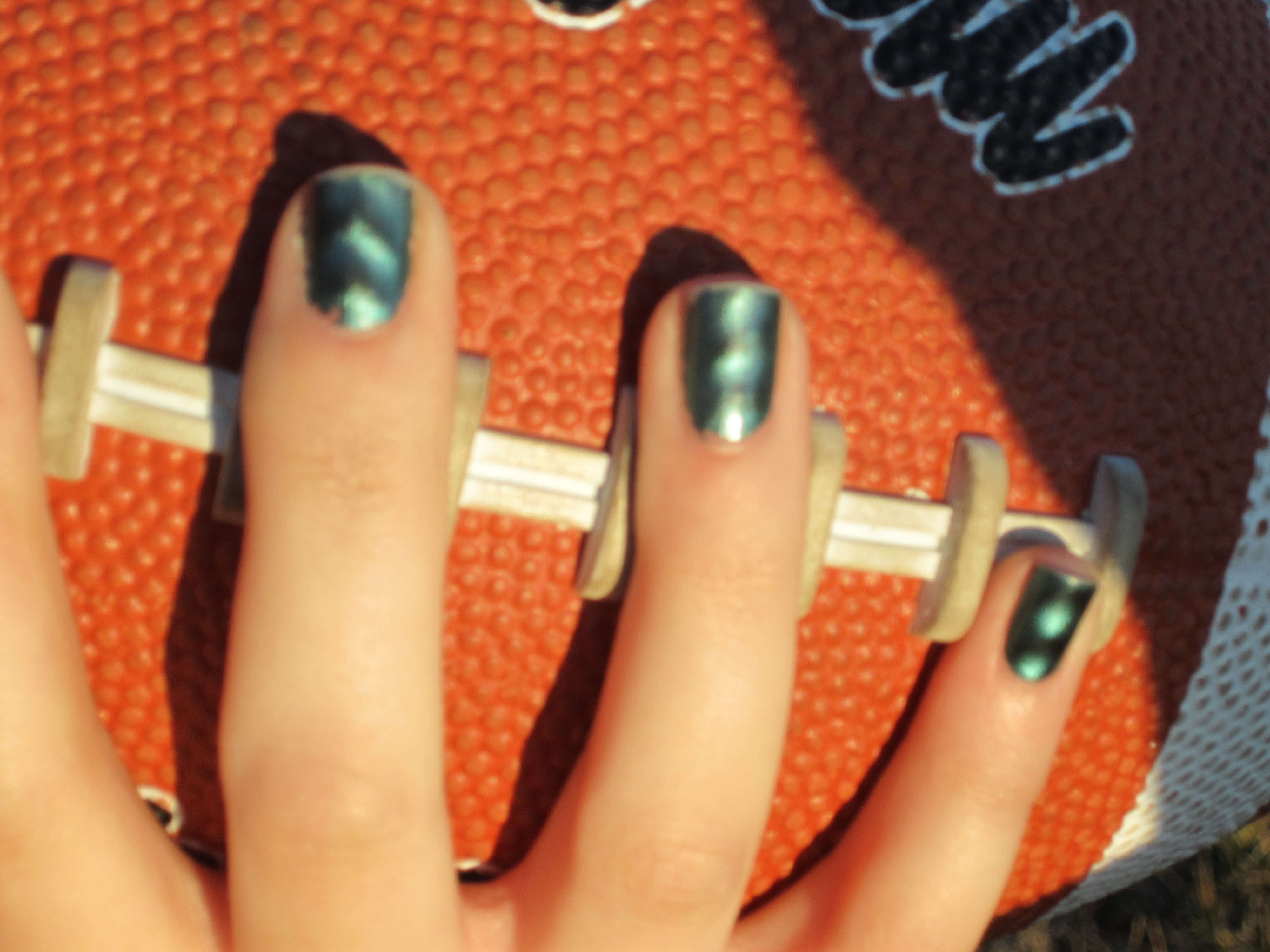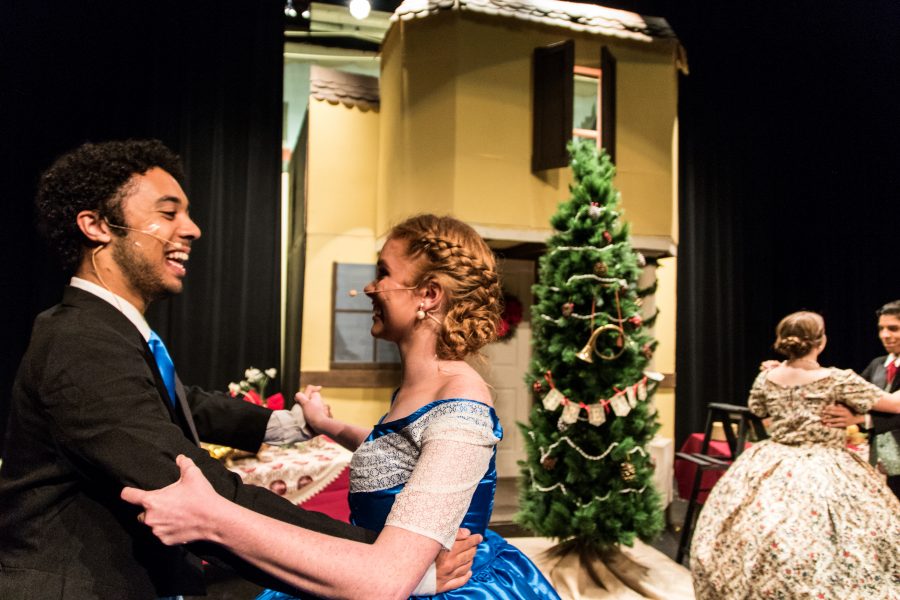By: Guest Writer Danielle Matta
LEESBURG, VA-
Stinnett High School in Texas, 1947
Frankie Groves plays right tackle for the Stinnett Rattlers on November 14th.
Three weeks later, the University Interscholastic League passes a rule banning girls from playing football in Texas.
Wishkah Valley High, Washington, 1973
Kathy Tosland wins a starting position as a running back for the Wishkah Loggers.
Soon after, the Washington Interscholastic Activities Association goes to court and bans Kathy from competing in any games against other schools with her team.
Quemado High School, New Mexico, 1975.
Sally Gutierrez plays as backup guard for the Quemado Eagles during fall practices.
The New Mexico Activities Association prohibits her from playing in games due to the state athletic regulation that says girls cannot play sports with boys.
Sally does not back down. She files a suit challenging the regulation.
And she wins.
Throughout American history, the women of our nation have constantly struggled to become equal with men. The scenarios above are true examples of this struggle. All these girls wanted was to play football, a sport that was and still is a large part of American culture and society. And yet the state officials always found a way to use their power to stop the girls from playing, using excuses like “girls aren’t tough enough for football” or “football is a male’s sport.”
Since she has been an athlete practically her entire life, Kristan Silvestri, 29, knows all about the discriminating comments made towards women in sports.
“There was a time in high school when I was called a ‘bull dyke’ because of my muscular build. That wasn’t the greatest feeling, getting a label just because I looked different in a tank top,” she says.
Kristan, or Coach Kris, as her gymnastics team at Southern Connecticut State University calls her, has been involved in sports ever since she was a kid. Being the “tomboy” that she was, she didn’t mind playing “backyard football” with the neighborhood boys. Even at age ten she had asked her mother if she could play tackle football with the other boys.
She is definitely not the only one. Football has become one of America’s favorite sports, and it is exposed to every child who doesn’t live under a rock. It is only logical to think that if there are boys who are eager to play football at a young age, then there are girls who are eager too.
As these kids get older and enter high school, they are encouraged to be active in school activities or sports. There are many sports options available for both girls and boys. In Tuscarora High School a large variety of choices are offered for girls, but one sport in particular seems to be missing. So what happens to girls like Kristan who enjoyed playing football as children? There is no girls’ team for them to continue to play the sport they love and develop their skills.
There is, of course, the boys’ football team, which actually does not restrict female students from trying out. But even for the rare girl who is brave enough to cross the gender boundary of such a male dominant sport, there are many challenges she would face in being the only female on the team, not only socially, but physically too.
This problem would be eliminated if a team specifically for girls existed. Then those girls who grew up playing football and developed a passion for it could play on at a high school level.
Meg Upp is an example of a woman who would have joined a girls’ football team if it were provided at her high school. Being the gymnastics and cheerleading coach, as well as a Physical Education teacher at Tuscarora, she says that having a girls’ football team at the high school level would help develop leadership skills in girls, as well as teaching the strength and coordination that it takes to play the game.
“They would also have to overcome diversity, because it is something new, and I think they would have to have enough courage to start a team since [Tuscarora] doesn’t have one,” she adds.
High school is a time to develop personal talents and goals. For many, participating in a sport is a way to combine both involvement in the school and the process of growing and developing into the person you will become as an adult.
As a high school student, Mrs. Upp was involved in several sports, including competitive cheerleading, diving, and softball, and she feels her experience in high school sports played a large role in her own personal development.
“It definitely shaped who I am,” she says. “Looking back, it taught me how to work as a team, it taught me to be a leader, and it gave me time management skills. It also just gave me an appreciation for fitness. As an adult I don’t compete, but I still value being fit because I learned that.”
Mrs. Upp believes it is important for students to be involved in an activity in high school that allows them to belong to something and work with others. As a P.E. teacher for 7 years she has seen many people benefit from physical activity, including herself.
She says, “Playing sports in high school was a formative role in developing my personal skills. Just setting out to work hard towards a goal and then learning how to accept defeat as well as victory taught me kind of how life works.”
With such strong evidence of the positive effects sports can have in a young person’s life, it’s hard to believe that such an imperative step of development could be discouraged. Our high school students of today, after all, are the adults of the future. But playing football has been discouraged for girls in the past. And amazingly, even after all the rights and respect women and girls have gained in our society, there are still examples of sexism in our modern society, football, being one of them.
When the prospect of a girls’ football team at Tuscarora comes up, Dayana Portillo, a freshman, comments that she doesn’t think many girls would join because “football is a sport you need to be committed to, and girls wouldn’t want to do that. Most girls like to go home in the afternoon and chill with friends, not lift weights and run a mile a day.”
While this may be untrue and somewhat of a stereotype, it is a view many people share. Other students also agree that it would be hard to interest enough girls to make a full team.
“Obviously no girls at our school feel that strongly about playing, because if they did, they would have started one with the school athletics department,” another freshman student, Michelle Chabot, says.
It does seem evident, as this one student points out, that there is a lack of passion in girls to try and request a football team. But why is that? Is it truly because girls have no interest in playing football and don’t care enough to try and get an all-girls team?
Even though there is not a team out there in the high school level, that does not mean girls don’t want to play. As a result of a hypothetical girl’s football club signup sheet posted outside of the girl’s locker room at Tuscarora, over 17 girls from various grades signed their names, stating that they would be interested in joining a girls’ football club.
So if the problem is not where the interest lies, then what is the problem? Could it be because the process of forming something that has never been done before is so daunting that many students shy away? Or perhaps it’s fact that the only way for a girl to play football on a team before high school is to play with boys.
“I think the problem is that [girls’ football] is not really available at the lower levels either. You can’t just start in high school; it has to start younger and develop,” Mrs. Upp says.
The biggest reason though, could be what actually happens after high school.
Contrary to what many people think, there are women’s football leagues available after high school, such as the two leading ones in our nation, the WFA (Women’s Football Alliance), and the IWFL (Independent Women’s Football League) But the women on the WFA and IWFL have to actually pay or be sponsored to play, and the extreme costs eliminate half the women who want to play but can’t afford to.
Kristan calls this the “domino effect.” Expensive costs eliminate interested women, which then in turn decreases the potential size of the league and the women who want to pursue football.
Despite all these obstacles, girls who love and want to play on a football team should not give up hope. Because just like there are examples of girls who tried to get involved and were stopped, there are also examples of women who ignore society’s stereotypes and achieved their goal.
Coach Kris is one of those women. When she was 22, after she had participated in competitive gymnastics throughout high school and college, Kristan tried out for the Pittsburgh Passion, a professional women’s football team in the WFA, and was successful. She was a middle linebacker for two years and then moved to Florida, where she created her own women’s team, the Palm Beach Punishers, and played inside linebacker. After three years, she moved again, this time to North Carolina, where she joined another team, the Carolina Phoenix, and played safety position. Next, she played for the Pittsburgh Force as a running back, but she wasn’t able to play in a game due to a tear in her ACL (Anterior cruciate ligament).
Now Kristan is a gymnastics coach, and she is helping out The New England Nightmare, another women’s football team. Although society hasn’t quite accepted women football players, that never stopped Kristan. She’s played professional football for 7 years in multiple women’s teams. That doesn’t mean it was always easy, though.
“Anyone who has ever learned that I play women’s tackle football asks these questions in this order, almost 100% of the time: ‘What, like powder puff?’ And I say, ‘No, like REAL football.’ ‘Pads, helmet and everything?! Oh wait, is this the lingerie league?’ And I answer, ‘No, we do not play football half naked, we wear the same things that the guys wear,’” Kristan says.
She has also had to face a lot of discrimination for being a woman and playing football. One instance is when she and her team played a game against men in Los Angeles for a reality TV show called “The Gender Bowl.” They had only lost by a touchdown, but in the MVP’s speech the man said, “This should prove that women belong in the kitchen, not on the field.”
“Needless to say I was furious, because they shouldn’t have won the game; it was a referee’s mistake. We played our butts off, held our own, and out strategized those men up and down the field,” Kristan says.
One of the largest challenges girls will have to face when dealing with their involvement in football is ignorance. Lack of knowledge about the subject is one of the main reasons so many people are still uncomfortable with the idea of women in shoulder pads.
“I don’t think the majority of society knows about our leagues…or our game. I would say 1 in every 20 people know about a women’s football team. That’s not a lot,” Kristan says. “Nothing new needs to really happen except that both leagues need to combine into one league, eliminate the small and unproductive teams, and start at least funding each female to play.”
It is clear to see that our society still has a long way to go before this happens. But if the girls who are passionate and persistent about playing football insist on being viewed just as equally as the male players are, then this could be achieved, not only in the professional level, but in the high school level as well. Who knows, maybe in the future, Tuscarora will have a girls’ football team of their own. Keep trying and keep fighting seems to be the advice given by both Coach Kris and Coach Upp. And as for those who don’t believe women can play football, Kristan says this: “It doesn’t matter what they think. There have been some super strong and diligent women out there for the past 15 years working their tails off to stabilize these professional women’s football leagues. And I’m so proud of that that it’s not worth the argument anymore. Our leagues aren’t going anywhere.”
The Touchdown for Equality
February 21, 2012
Leave a Comment
ABOUT THE PACK
The Pack is the newspaper of Tuscarora. Through creativity and passion the Pack pursues the news of the school and the world.
The Pack is the newspaper of Tuscarora. Through creativity and passion the Pack pursues the news of the school and the world.






